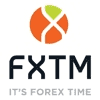At the onset of last week, decades of Middle Eastern tensions came to a head for Qatar. Emir Tamim bin Hamad Al Thani hasn’t been a stranger to controversy, thanks to his contentious foreign policies which tend to be positive towards Iran, one of Saudi Arabia’s greatest rivals. Relations between the Sunnis of Saudi Arabia and the Shias of Iran have been historically strained, and Qatari’s Emir has become familiar with the brunt of Saudi scold. After serious allegations of Qatar’s active support of terrorism surfaced, however, Saudi Arabia decided to take more drastic measures in ways of reprimand.
On Monday, 5 June, Saudi Arabia formed something of a coalition with the UAE, Egypt, Bahrain and Yemen, and cut diplomatic and economic ties with Qatar. The Maldives, Mauritius and Mauritania, Libya, and Comoros have since joined this union, blocking all of their land, sea and air channels to Qatar. A 2-week notice was given to Qatari citizens to leave the Gulf Cooperation Council (GCC) and all nationals of any member state within the GCC have also become prohibited to travel to Qatar. Qatar is vehemently denying the allegations, of course, and in the past few days - as of writing - has been getting support from Turkey and Iran in its efforts against the blockade. This kind of support, from two countries that have faced similar accusations in the past, has only ratcheted up tensions further.
Naturally, this kind of destabilisation in a part of the world that has been teetering on the edges of war for decades, will have its effect on global currency trading. The Qatari Riyal was the first to take a hit, when confirmation of twelve-month lows on the futures market came through to the FXTM offices on 9 June. This followed Moody’s decision to reduce the country’s credit rating from AA3 to AA2, which is clear reflection of the lack of confidence the international community has in Qatar’s economy and its prospects for growth. S&P followed Moody with a downgrade from AA to AA- and just this past Monday, on 12 June, Fitch Ratings added their voice to the chorus by officially putting Qatar’s AA Issuer Default Ratings on the watchlist for an impending downgrade.
Those who have been keeping an eye on forex trading will have seen the USD hitting a 12-year high against the Riyal in the week of 5 June, with a peak at 3.6526 on Wednesday. All of this, in spite of the Riyal’s peg to the US Dollar at 3.64. When combined with tumbling oil prices and general worries regarding the long-term prospects of energy profits , it’s little wonder that investor confidence is low. In fact, a number of investment funds have been withdrawn from Qatar’s securities portfolio, and S&P have put the country on CreditWatch, News of Pakistan declining to trade the Riyal on the currency markets, joining a handful of Sri Lankan banks came as no surprise to FXTM . The financial world now waits with baited breath to see how these events , especially if the Qatari government is forced to look for alternative trading routes (the country itself is heavily dependent on imported foods, and Saudi Arabia has always been a key importer). Some believe that Qatar may use the $355 billion of Sovereign Wealth Funds it reportedly has in the bank as a safety cushion against the consequences of an embargo. Countries may also become wary of further aggravating the biggest exporter of liquefied natural gas (LNG), as Qatar may be forced to use its dominant position in the gas and oil industry as a bargaining chip in the presumed international negotiations that will likely follow.
Disclaimer: The content in this article comprises personal opinions and ideas and should not be construed as containing personal and/or other investment advice and/or an offer of and/or solicitation for any transactions in financial instruments and/or a guarantee and/or prediction of future performance. FXTM, its affiliates, agents, directors, officers or employees do not guarantee the accuracy, validity, timeliness or completeness of any information or data made available and assume no liability as to any loss arising from any investment based on the same.
Risk Warning: There is a high level of risk involved with trading leveraged products such as forex and CFDs. You should not risk more than you can afford to lose, it is possible that you may lose more than your initial investment. You should not trade unless you fully understand the true extent of your exposure to the risk of loss. When trading, you must always take into consideration your level of experience. If the risks involved seem unclear to you, please seek independent financial advice.
